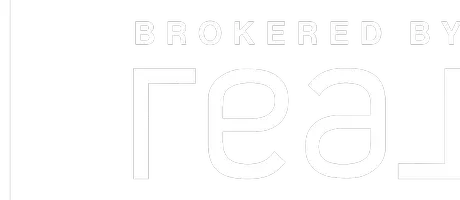
10 steps to take after closing on your home
Congratulations! You have just closed on your new home, and now it's time to start settling in. Whether you're a first-time buyer or a seasoned homeowner, there are a few important steps you should take after closing to ensure a smooth transition into your new property. Here are 10 essential tasks to tackle as you begin this exciting chapter in your life.1. Change the locks: It's always a good idea to change the locks on your new home as soon as possible. You never know who might have a spare key, so safeguard your property and your peace of mind by installing new locks.2. Review your closing documents: Take some time to thoroughly review all the paperwork from the closing. This will help you understand the terms of your mortgage, any warranties, or other important documents related to your home.3. Establish utility services: Contact utility companies to set up accounts for electricity, gas, water, and other essential services. Ensure a smooth transition by having these services activated before you move in.4. Create a maintenance schedule: Develop a routine maintenance schedule for your new home. Regularly inspecting and maintaining your property will help prevent costly repairs down the line.5. Update your address: Notify the post office, your bank, credit card companies, and other important contacts about your change of address. This will ensure that you receive all your mail and important documents in a timely manner.6. Transfer insurance policies: Update your homeowner's insurance policy to reflect your new property. Coordinate with your insurance agent to ensure adequate coverage for your home and personal belongings.7. Set up a home security system: Invest in a reliable home security system to safeguard your property. This will provide you with peace of mind knowing that your home is protected.8. Plan for any renovations: If you're considering making renovations or improvements to your new home, start planning and budgeting for these projects. Research contractors, obtain estimates, and prioritize your renovations based on your needs and budget.9. Meet your neighbors: Take the initiative to introduce yourself to your new neighbors. Building good relationships with them can not only foster a sense of community but also provide you with valuable information about your new neighborhood.10. Enjoy your new home: Last but not least, take the time to appreciate and enjoy your new home. Celebrate this milestone and make lasting memories in your new space.Closing on your home is a significant accomplishment, but the journey doesn't end there. By following these 10 steps, you can ensure a smooth transition into your new property and embark on a successful homeownership journey.

Pros and cons for first-time home buyers program
Pros and Cons of First-Time Home Buyers ProgramsBuying your first home is a significant milestone in your life. It's an exciting venture, but it can also be overwhelming, especially when it comes to financing. Fortunately, there are first-time home buyers programs designed to assist individuals like you in achieving the dream of homeownership. These programs offer various benefits, but they also come with a few drawbacks. In this blog post, we will explore the pros and cons of first-time home buyers programs, helping you make an informed decision.Pros:1. Down Payment Assistance: One of the most significant advantages of first-time home buyers programs is the availability of down payment assistance. Many programs offer grants or low-interest loans to help cover the down payment and closing costs. This assistance can significantly reduce the financial burden of purchasing a home, making it more affordable for first-time buyers.2. Lower Interest Rates: Some first-time home buyers programs provide access to lower interest rates, making homeownership more affordable over the long term. These lower rates can save you thousands of dollars in interest payments throughout the life of your mortgage.3. Easier Qualification: First-time home buyers programs often have more lenient qualification criteria compared to traditional mortgage loans. They may consider alternative credit histories, lower credit scores, and higher debt-to-income ratios. This flexibility increases your chances of being approved, even if you don't meet the strict requirements of a conventional mortgage.4. Educational Resources: Many first-time home buyers programs offer educational resources and counseling to help you navigate the complex process of buying a home. These resources can provide valuable information on budgeting, credit improvement, and home maintenance, ensuring you make informed decisions throughout your homeownership journey.Cons:1. Limited Availability: First-time home buyers programs are not universally available. They are often offered by specific lenders or government agencies and may have limited funding. This means that not everyone who qualifies as a first-time buyer will be able to secure program assistance. It's essential to research and explore your options early in the home buying process to ensure you can take advantage of these programs.2. Potential for Higher Monthly Payments: While first-time home buyers programs can provide lower interest rates, they may also have higher monthly payments due to mortgage insurance or other program-specific requirements. It's crucial to carefully evaluate the terms and conditions of the program to understand the ongoing costs associated with it.3. Repayment Obligations: Depending on the specific first-time home buyers program, you may be required to repay the down payment assistance or other benefits received. Before committing to a program, make sure you understand the terms of repayment, if applicable. Some programs may require repayment if you sell the home within a certain period or if your income exceeds a specific threshold.4. Potential for Limited Property Choices: Some first-time home buyers programs have restrictions on the types of properties that qualify for assistance. This can limit your options when it comes to choosing a home. These restrictions may include maximum purchase prices, location requirements, or property condition standards. It's essential to consider these limitations and evaluate whether they align with your homeownership goals.In conclusion, first-time home buyers programs offer significant advantages for individuals looking to enter the real estate market. Down payment assistance, lower interest rates, and easier qualification criteria can make homeownership more accessible and affordable. However, limited availability, potential higher monthly payments, repayment obligations, and property restrictions are essential factors to consider. It's crucial to thoroughly research and compare different programs to find one that aligns with your financial situation and homeownership goals. By understanding the pros and cons, you can make an informed decision and embark on your journey to becoming a homeowner with confidence.

Should you rent or buy? Before you decide, ask yourself some questions
Making the decision whether to buy or rent a property is one of the biggest financial decisions you will ever make. It requires careful consideration of various factors, including your lifestyle, financial situation, and long-term goals. In this blog, we will explore the pros and cons of both buying and renting, as well as the key factors to consider when making this decision. Buyers: For many people, buying a home is a lifelong dream. There are several advantages to becoming a homeowner. Firstly, buying a property allows you to build equity over time. Instead of paying rent and having nothing to show for it, you are investing in an asset that can appreciate in value. Additionally, owning a home gives you the freedom to make any modifications or renovations you desire, allowing you to truly make it your own. Homeownership also provides stability and a sense of belonging in a community. When you own a property, you have the freedom to stay in one place for as long as you like, without the fear of landlords or rental agreements. Furthermore, owning a home can offer potential tax benefits, such as deducting mortgage interest payments from your taxable income. However, buying a home also comes with its drawbacks. The upfront costs of purchasing a property, including the down payment, closing costs, and other fees, can be substantial. Additionally, homeowners are responsible for maintenance and repairs, which can be costly and time-consuming. Moreover, if property values depreciate, you may face a loss on your investment. Sellers: On the other hand, if you are considering selling your property, there are several factors to take into account. One advantage of selling is that you have the potential to make a profit if your property has appreciated in value. This profit can be used to upgrade to a larger home, invest in other ventures, or simply enjoy the financial gain. Selling a property can also offer flexibility. If you are no longer satisfied with your current location or need to downsize, selling allows you to find a more suitable home that aligns with your changing needs. Additionally, by selling, you can eliminate the ongoing costs of homeownership, such as property taxes, maintenance, and insurance. However, selling a property can also be a complex and time-consuming process. It requires careful planning, marketing, and negotiation skills. Furthermore, market conditions play a significant role in determining the success of your sale. If the real estate market is slow or experiencing a downturn, it may take longer to sell your property and you may not achieve the desired price. Factors to Consider: When deciding whether to buy or rent, there are several factors you should consider. Firstly, evaluate your financial situation. Determine if you have enough savings for a down payment and if you can comfortably afford the ongoing costs of homeownership, such as mortgage payments, property taxes, insurance, and maintenance. Consider your long-term plans and goals. If you anticipate moving frequently or prefer flexibility, renting may be a better option. However, if you are looking for stability, want to build equity, and have the desire to personalize your living space, buying may be more suitable. Evaluate the real estate market conditions in your area. If property values are steadily rising, it may be a good time to buy, as you can potentially benefit from appreciation. Conversely, if the market is unstable or declining, renting may be a safer option until conditions improve. Lastly, consider your lifestyle and personal preferences. Owning a home requires a level of commitment and responsibility. If you prefer a carefree lifestyle, where maintenance and repairs are taken care of by the landlord, renting may be more suitable for you. In conclusion, the decision to buy or rent a property requires careful consideration of various factors. Both options have their pros and cons, and it ultimately depends on your individual circumstances and goals. By evaluating your financial situation, long-term plans, market conditions, and lifestyle preferences, you can make an informed decision that aligns with your needs and aspirations.

